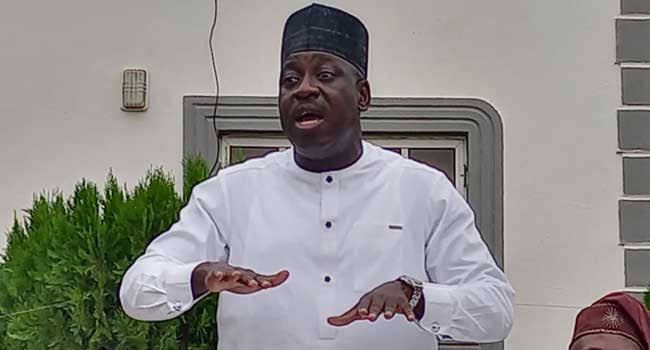Paragraph 1: Tinubu’s Intervention in Rivers State Governance and ADC’s Criticism
President Bola Tinubu’s decision to lift the six-month emergency rule imposed on Rivers State has drawn criticism from the African Democratic Congress (ADC). The ADC accuses Tinubu of overstepping his constitutional authority by suspending and subsequently reinstating Governor Siminalayi Fubara and other state officials. The party argues that the President’s actions undermine democratic principles and the autonomy of states, setting a dangerous precedent for executive interference in the affairs of elected governments. The ADC contends that the emergency rule, imposed on March 18, 2025, and lifted on September 17, 2025, was politically motivated and served to consolidate the ruling party’s control over the state. The party questions the legitimacy of the President’s intervention, emphasizing that elected officials derive their authority from the people, not from the presidency.
Paragraph 2: Constitutional Concerns and the Erosion of Democratic Principles
The ADC highlights the constitutional implications of President Tinubu’s actions, asserting that the Constitution does not empower the President to suspend or reinstate elected governors. They argue that only a competent court has the authority to remove or restrain elected officials, not presidential decree. The party frames Tinubu’s intervention as a blatant disregard for the rule of law and a dangerous erosion of democratic norms. They warn that such actions could create a chilling effect on other state governments, fostering a climate of fear and subservience to the federal government. The ADC characterizes the President’s actions as a clear departure from his previously proclaimed commitment to federalism and the autonomy of states.
Paragraph 3: Allegations of Political Manipulation and Intimidation
The ADC accuses President Tinubu of using the emergency rule as a political tool to exert control over Rivers State. They assert that the situation that prompted the declaration of emergency was a “political contrivance” and that Tinubu’s actions reflect a broader pattern of political manipulation. The party believes the President’s intervention aimed to “pacify” the Rivers State government and send a warning to other states to toe the line. They dismiss the official justification for the emergency rule, arguing that it was not motivated by genuine security concerns but rather by a desire to consolidate political power. The ADC expresses concern that this episode could embolden the President to use similar tactics in other states to suppress dissent and maintain control.
Paragraph 4: The Role of the Judiciary and the Need for Accountability
The ADC calls on the judiciary, particularly the Supreme Court, to take a decisive stance against President Tinubu’s actions. They argue that the judiciary’s silence on this matter would amount to complicity in the undermining of democracy. The party urges the Supreme Court to clarify the constitutional limits of presidential power and to reaffirm the principle of state autonomy. They emphasize the importance of upholding the rule of law and ensuring accountability for executive overreach. The ADC’s appeal to the judiciary reflects its belief that the courts have a critical role to play in safeguarding democratic institutions and preventing the abuse of power.
Paragraph 5: The Implications for Nigerian Democracy and the Future of Federalism
The ADC warns that President Tinubu’s actions set a dangerous precedent that could have far-reaching consequences for Nigerian democracy. They argue that the President’s intervention undermines the principles of federalism and could lead to a more centralized and authoritarian system of government. The party expresses concern that the erosion of state autonomy could exacerbate existing tensions and fuel instability. They call for a renewed commitment to democratic principles and a reaffirmation of the importance of checks and balances to prevent the concentration of power in the hands of the executive. The ADC’s warning underscores the fragility of democratic institutions in Nigeria and the need for constant vigilance to protect them from erosion.
Paragraph 6: The ADC’s Call for Vigilance and Defense of Democratic Principles
The ADC calls on all Nigerians to be vigilant in defending democratic principles and resisting any attempts to undermine the rule of law. They urge citizens to hold their elected officials accountable and to speak out against abuses of power. The party emphasizes the importance of a free press, a vibrant civil society, and an independent judiciary in safeguarding democracy. They express their commitment to continue fighting for a more just and democratic Nigeria, where the rights of all citizens are respected and protected. The ADC’s concluding call to action reflects their belief that the future of Nigerian democracy rests on the active participation of its citizens and their willingness to defend democratic values.














